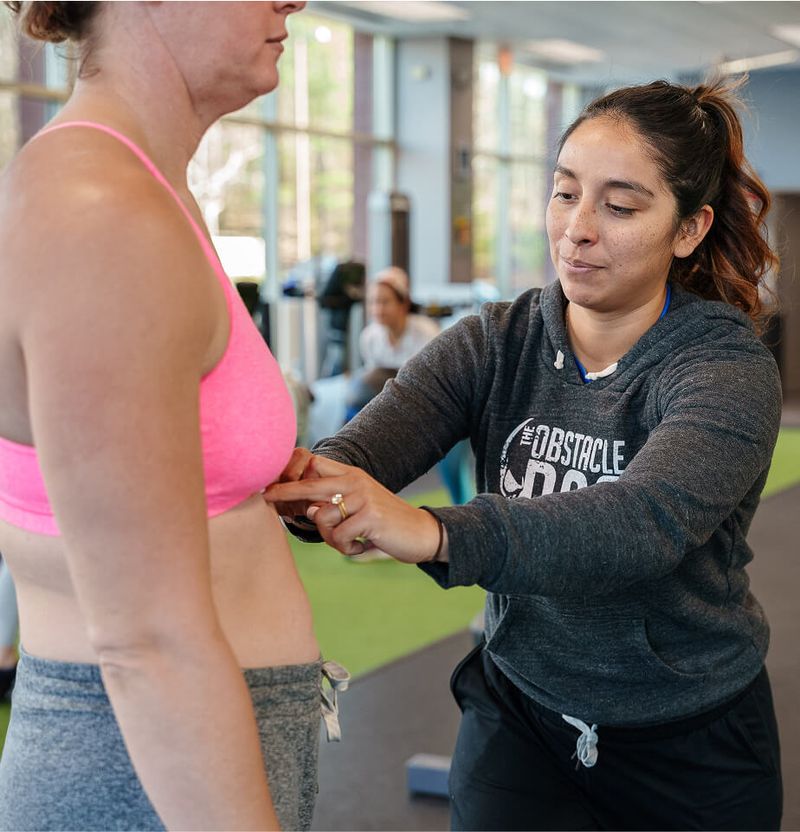The Benefits of Postpartum Physical Therapy: From C-Section Recovery to Diastasis Recti Healing

Giving birth—whether through a vaginal delivery or C-section—is a major physical event. And while the body is remarkably resilient, the idea that rest alone is enough to fully recover is outdated. Postpartum healing requires more than just time—it requires support, guidance, and intentional movement.
This is especially true for women recovering from a C-section or managing core challenges like diastasis recti. These conditions can impact everything from posture to bladder control to daily comfort, yet many women are told these symptoms are “just part of motherhood.”
At The Obstacle Doc in Durham, postpartum physical therapy is about more than symptom relief—it’s about restoring strength, confidence, and function. With expert support, women don’t just recover. They reclaim how they move and feel in their bodies.
READ: The Complete Guide to Durham NC Physical Therapy
Common Postpartum Challenges Physical Therapy Can Address
The postpartum body goes through dramatic changes, and many of those changes don’t simply resolve on their own. Physical therapy offers a safe, effective path to recovery for a wide range of common concerns—especially those that often go overlooked or under-treated.
Diastasis Recti:
This separation of the abdominal muscles can affect core strength, posture, and stability. Many women experience a “doming” effect in the belly or a lingering sense of weakness. PT helps retrain the deep core muscles and restore proper alignment.
C-Section Recovery:
C-sections are major surgeries, and yet many women don’t receive any rehab. Physical therapy can address scar tissue sensitivity, improve abdominal mobility, and ease the discomfort that often follows the procedure.
Pelvic Floor Dysfunction:
Issues like leaking, heaviness, or pain with movement or intimacy are common after childbirth. Pelvic floor therapy helps retrain these muscles to work in coordination with the core and breath.
Lower Back and Hip Pain:
These areas often bear the brunt of new movement patterns—think nursing, carrying, and rocking. PT helps restore balance and reduce tension in these chronically overworked zones.
At The Obstacle Doc, each of these concerns is treated with care, science, and respect—because every woman’s recovery deserves that level of attention.

How The Obstacle Doc Supports C-Section and Diastasis Recti Healing
At The Obstacle Doc, postpartum care starts with a conversation—because no two recoveries are alike. Whether you’re newly postpartum or months down the line, every session begins with a personalized assessment of how your body is functioning, what your goals are, and where you’re feeling limited.
For C-section recovery, therapy may begin with gentle work around the scar to reduce sensitivity and improve mobility. Over time, your therapist will guide you through progressive core exercises that rebuild strength safely without stressing the incision site. Postural alignment, breathing patterns, and daily movement habits are also addressed to reduce tension and promote healing.
For those with diastasis recti, the focus is on reconnecting with deep core muscles like the transverse abdominis and pelvic floor. Rather than aggressive crunches or planks, therapy involves controlled, functional movements that support healing while enhancing core control. As strength returns, exercises are advanced gradually—always guided by how your body responds.
Throughout every stage, you’ll be supported by a therapist who understands postpartum physiology and meets you with care, encouragement, and a strategy that respects your recovery pace.
READ: Physical Therapy for Extreme Sports Athletes: Building Strength, Stamina, and Resilience
Why Early Intervention Matters—But It’s Never Too Late
Starting physical therapy shortly after childbirth can offer significant benefits. Early intervention helps address core weakness, reduce scar tissue buildup, and retrain the pelvic floor before compensations settle in. But here’s the truth: healing doesn’t have an expiration date.
At The Obstacle Doc, we see women weeks, months, and even years postpartum. Some come in after their first child, others after their third. Whether it’s unresolved pain, diastasis recti that never quite healed, or pelvic floor symptoms that appeared later on, meaningful progress is still possible.
The body has an incredible capacity to change when it’s given the right tools. So if you’ve been living with discomfort or limitation, it’s never “too late” to start therapy. Whether you’re newly postpartum or years into motherhood, recovery is still within reach—and we’re here to help you reclaim it.
Trusted Postpartum Support in Durham, NC
At The Obstacle Doc, postpartum physical therapy isn’t a side service—it’s a core part of what we do. We believe every woman deserves expert support during one of the most physically demanding transitions of her life. Whether you're recovering from a C-section, managing diastasis recti, or simply trying to feel strong and capable again, our team is here to guide you.
We provide one-on-one care in a welcoming environment where questions are encouraged and progress is tracked at your pace. Our approach is evidence-based, compassion-driven, and tailored to the realities of motherhood—because healing shouldn’t add stress to your life. It should restore confidence in your body.
In Durham and beyond, women trust The Obstacle Doc to help them move better, feel stronger, and recover fully—not just from birth, but toward everything life demands after it.

